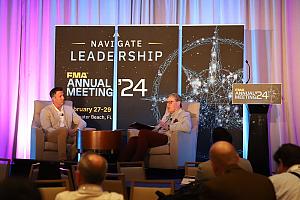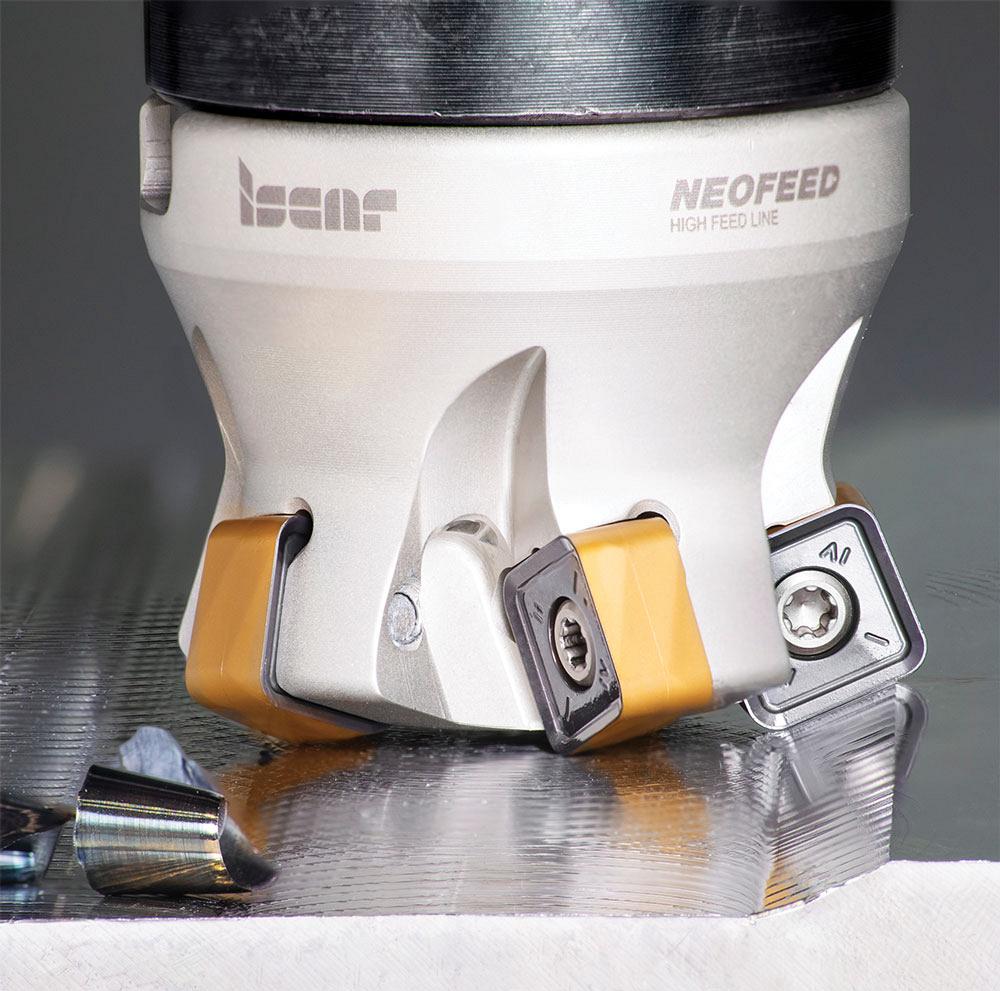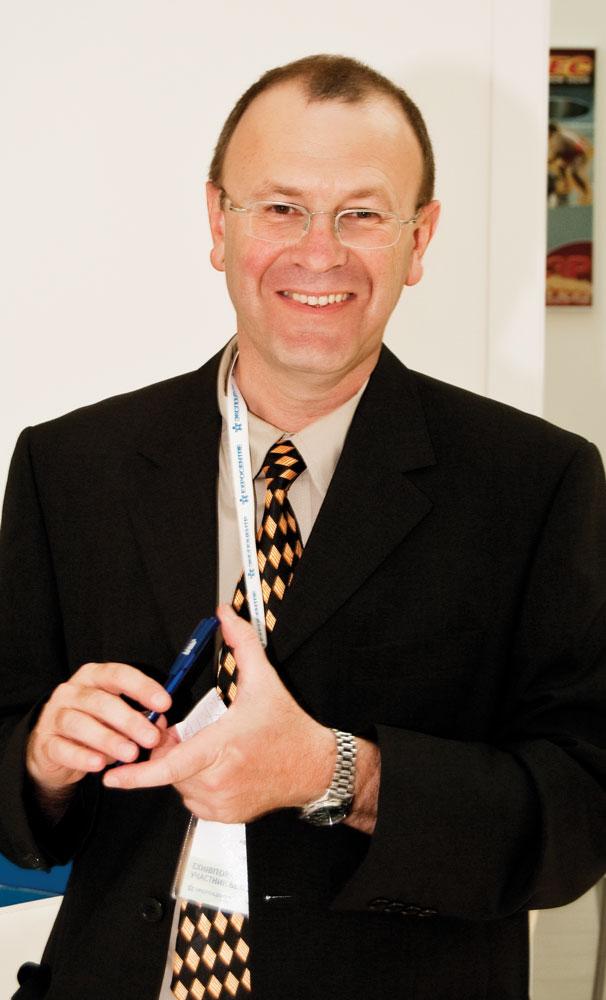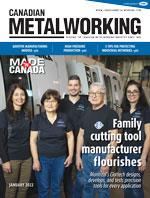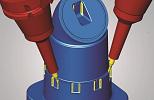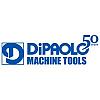Editor
- FMA
- The Fabricator
- FABTECH
- Canadian Metalworking
Supplier Side Talk: Iscar
Editor Joe Thompson spoke with Iscar’s Technical Manager Andrei Petrilin.
- By Joe Thompson
- February 14, 2022
- Article
- Cutting Tools
Iscar is the largest of the 15 companies that make up the International Metalworking Companies Group (IMC) and is owned by Warren Buffett’s Berkshire Hathaway. Founded in 1952 by Stef Wertheimer, today the company is run by President/Chairman Jacob Harpaz and CEO Ilan Geri from its headquarters in Tefen, Israel. The Canadian division, based in Oakville, Ont., is headed by General Manager Tom Hagan and Vice-President Joe Leighton.
Recently Editor Joe Thompson spoke with Technical Manager Andrei Petrilin about the company’s direction and its new product launch. Here is part of that discussion.
Thompson: In terms of market segmentation, there seems to be more brand choices for tooling buyers these days than ever before. How important is it to have differentiators in your product, and are there differentiators in the NEOLOGIQ line?
Petrilin: Iscar's customers are always asking for more productivity. They also are concerned with how they can make their manufacturing process safer and more efficient. Our R&D engineers are continuously developing completely new machining processes that save time by increasing the speed, increasing the feed, or using a combination of tools to reduce the total number of tools to make production faster.
New products are developed and tested in experimental spaces under realistic conditions.
Iscar launched its NEOLOGIQ campaign to introduce a new standard in cutting tool excellence. The result is a range of tooling that both predicts and fulfills customer needs. NEOLOGIQ represents a smart, logical progression in a series of strategic moves to implement Industry 4.0 standards, while ensuring continuity and stability.
For me, the big differentiator making all these great tools and solutions possible is Iscar’s culture of innovation. It permeates every individual, every team, and every project. Innovation is the DNA driving our success.
Thompson: It’s certainly been a rocky couple of years for consumers and suppliers alike. Was this rollout affected by the pandemic, global shortages of materials, or even a shortage of sea cans?
Petrilin: Yes and no. Clearly, the pandemic caused a seismic shift in the way we interact with our customers. Fortunately, Iscar already was well placed in the digital space, allowing us to provide continual service throughout these challenging times.
We increased capacity at diverse production centres close to our customers, automated distribution hubs, used e-commerce and technical data platforms we call Iscar World, vending that replenishes stock at the point of use, and a host of other channels to keep our customers up and running.
Obviously, our salesforce was somewhat restricted in making on-site visits, but they continued to maintain contact with customers via online video meetings and other remote contact. They held digital seminars that introduced many of the great new NEOLOGIQ lines to our customers.
The pandemic may have limited how we communicate, but it didn’t dent our loyal customers’ thirst for new products and better ways to machine their parts.
The other difficulties you mention related to raw material shortages and shipping, which are still affecting the global economy and impacting production at many of our customers, have had only minor impact on us because of our strategic management of materials and a strong logistics model that ensures we have adequate stock in our regional hubs.
Thompson: What led to the inclusion in NEOLOGIQ’s tagline of “machining with no boundaries,” and how does this fit in with the company’s historical customers as well as new customers?
Petrilin: Iscar's tools provide high performance and long tool life, ensuring better and more streamlined machining processes for the customer. Aside from the machining cycle, we also emphasize the importance of reducing tool setup time.
Many companies invest a lot of time in creating new tool setups. By carefully analyzing this non-contact time, we help ensure that the customer can quickly and easily change inserts, tools, and drills.
It is this holistic approach that gives our customers an exit strategy from the maze. By removing traditional boundaries that limit performance, we open a whole new range of possibilities for new and old customers alike.
Thompson: As the metalworking industry comes to terms with the new normal, what does the near term of the sector look like?
Petrilin: The metalworking industry is driven by the automotive industry. Fifty per cent of Iscar's total revenue is derived from the automotive industry, so we are highly driven by the changes in that sector.
Having said that, we see that our automotive customers are going to need to be even more flexible because they must deal with a variety of engines, unlike in the past when we had only one kind. Some German automotive OEMs even have four or five different engines that they are producing in one line. Therefore, our tooling needs to be more flexible than in the past, especially considering the ongoing transition to electric vehicles.
Asia is quite similar to Europe. Looking at markets like China, we see a very dominant automotive industry. Volkswagen, for instance, opened a lot of subsidiaries and a lot of plants in China, and we are working closely with them.
Our rollout of NEOLOGIQ provides our customers with the tools they need to cope in a new era.
Industry 4.0 is dictating new standards, including artificial intelligence, big data, and the transformation to machining lightweight materials.
There are different ways to support Industry 4.0. Tool assemblies are available from our electronic catalogue where you can create a 3D model of the assembled tools to use in the system. With Industry 4.0, it is not only the hardware but also the digital twin of the tool that is produced.
It is obvious that customers are re-evaluating their production processes as the new era dictates agile, fast, and flexible options for managing metalworking.
Thompson: Growth by acquisition has been used effectively by many tooling suppliers in the past, including IMC. Why has this methodology been successful, and are there still areas that Iscar can grow into organically, or will IMC seek to acquire other firms?
Petrilin: IMC Group is constantly looking for ways to enhance its range of tooling solutions and related services in a way that is meaningful to our customers.
We supplement organic growth with targeted acquisitions that deliver new solutions, better service, and closer proximity to our customer base.
Iscar also has partnered with cloud technology companies to publish our product data onto the cloud, thereby making it readily available for customers to directly feed it to their CNC programming, machine simulation, and machine tool setup and operations.
Having direct access to cutting tool product data on the cloud reduces the frustration and time associated with obtaining the tooling information needed to run their CAM systems, tool management software, cutting tool pre-setters, and machine tools. Cloud technology helps Iscar's customers increase their productivity by offering instant access to the company’s complete and up-to-date cutting tool data, without the hassle of manually searching through printed catalogues.
About the Author

Joe Thompson
416-1154 Warden Avenue
Toronto, M1R 0A1 Canada
905-315-8226
Joe Thompson has been covering the Canadian manufacturing sector for more than two decades. He is responsible for the day-to-day editorial direction of the magazine, providing a uniquely Canadian look at the world of metal manufacturing.
An award-winning writer and graduate of the Sheridan College journalism program, he has published articles worldwide in a variety of industries, including manufacturing, pharmaceutical, medical, infrastructure, and entertainment.
Related Companies
subscribe now


Keep up to date with the latest news, events, and technology for all things metal from our pair of monthly magazines written specifically for Canadian manufacturers!
Start Your Free Subscription- Industry Events
Automate 2024
- May 6 - 9, 2024
- Chicago, IL
ANCA Open House
- May 7 - 8, 2024
- Wixom, MI
17th annual Joint Open House
- May 8 - 9, 2024
- Oakville and Mississauga, ON Canada
MME Saskatoon
- May 28, 2024
- Saskatoon, SK Canada
CME's Health & Safety Symposium for Manufacturers
- May 29, 2024
- Mississauga, ON Canada








